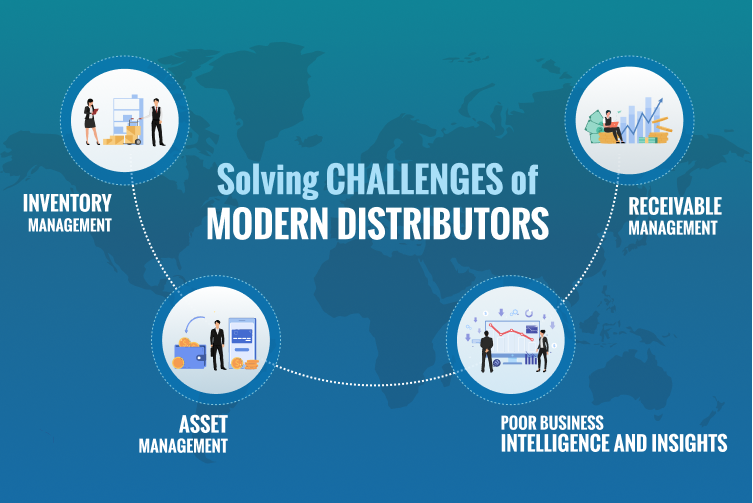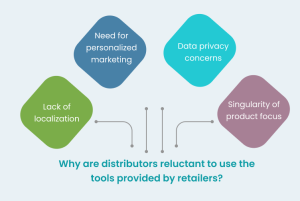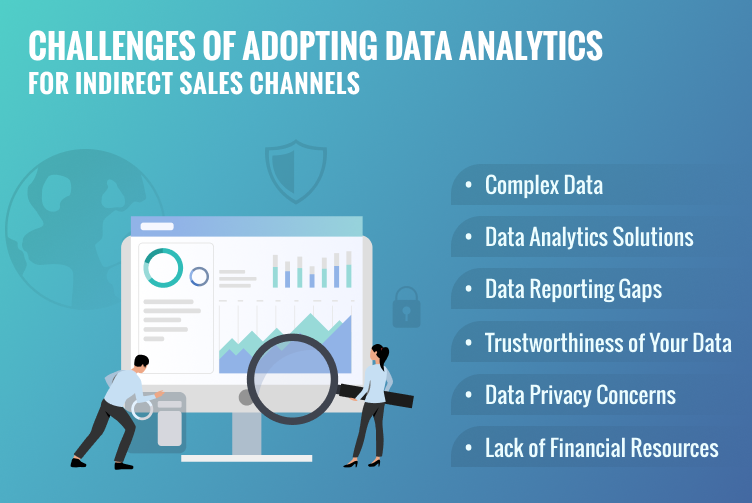Distributors are facing an increasing number of challenges in a market that is ruled by constant change and disruption. Increasing competition, growing product portfolios, and evolving customer demands are compelling distributors to improve their efficiencies and productivity and weed out outdated processes.
Optimized resource management is emerging as one of the final frontiers to enhancing outcomes and driving profitability. The distributor ecosystem, however, is anything but simple and that presents a formidable challenge to getting ahead. To drive profitability, optimized resource management is essential for distributors.
Distributors are essentially the bridge between manufacturers and retailers and can operate in different models. Globalization has also given distributors the advantage of making the world their playing field. This has made several distributors large, multi-product operations with massive scale to call their own.
Some of the resource management challenges for modern distributors can be identified as:
Inventory management
Inventory management challenges are not new to the distribution industry. Keeping track of all the goods coming in and moving out of the stocks and accurately tracking existing inventory has been difficult for distributors as operations scale up.
Manual inventory management is a time-consuming, effort-intensive, and often, error-prone process. Counting each item manually and keeping physical records are difficult and even slight inconsistencies in recordkeeping can lead to delays and consequently frustrated customers and product partners.
A lack of inventory insights can impact the supply chain negatively. Getting clarity and transparency in inventory management ensures timely stock replenishment. It also ensures low levels of dead stock while ensuring money doesn’t remain stuck here.
Robust digital tools such as ERP software make sure that distributors can optimize inventory management. With clear and data-backed insights, distributors can keep customer demands in mind and ensure adequate inventory is available to manage demand peaks and valleys.
Receivable management
For most businesses, cash is the most stressed resource. Managing their cash flow well is of critical importance for distributors. Since distributors usually operate with narrow margins and are constantly under pressure to remain competitive by turning cash around quickly, improving receivables management assumes critical importance in improving the bottom line.
Paper-based records and manual processes, however, impede optimized receivable management. These manual processes are effort intensive given the multiple variables and stakeholders involved in the entire process. These methods are also prone to errors with inaccurate invoices, delayed despatches, and inadequate or untimely follow-ups all causing delays in collecting what is due. Avoiding past-due invoices and increasing payment speed also become important for improving business outcomes and building trust.
Improving their receivable management capacities is now critical for distributors since distributors have to systematically raise profits, offload dead inventory capably and keep the cash at hand in circulation adequately.
Managing receivable overdue in large numbers can be troublesome and burdensome, especially for large-scale distributors. The absence of timely payments can lead to bad debts and impact the company’s reputation and the bottom line negatively as well.
Robust digital tools, in this scenario, become the enabler of efficiencies and profits. With optimized sales order management and complete clarity into receivables operations, distributors can ensure timely billing and account remediation. With timely payments, distributors can then run their business and manage the cash flow smoothly.
Asset management
Sales information management and elevated document management can become a huge challenge for distributors in the absence of comprehensive, and connected digital systems. Distributors need to manage their financial documents adroitly to ensure compliance and drive proper receivable management. Along with this, all other documentation regarding products and sales material and all demo materials also need to be tracked adequately so that they can be made available when needed.
However, paper-based manual systems make this process hard. Managing important documents in a paper-based format can leave them prone to damage or misplacement. Digital tools take care of this problem and help distributors keep a digital copy of all asset information and create a single source of truth to drive better management.
Poor business intelligence and insights
The distributor network also needs deep insights and improved business intelligence capabilities to navigate the competitive business landscape. However, with paper-based records, disparate or no digital systems in place, and disconnected departments, getting a cohesive, 360-degree view can be a herculean challenge. Manually data collection and information management are effort-intensive and often prone to loopholes.
Digital tools can connect all the different departments, including billing, sales, collections, purchase, inventory, and accounting to give a 360-degree view of operations. Distributors can navigate all market uncertainties, fine-tune future planning and identify growth opportunities using data-backed deep insights.
Distributors have to now leverage robust digital tools to navigate their resource management challenges and improve their operational, process, and workflow efficiencies. A robust ERP solution can help distributors manage customer demands and address the challenges of a tough and ever-competitive market with ease, comfort, and greater confidence. Talk to us now for a demo of a comprehensive digital ecosystem designed for distributors.




